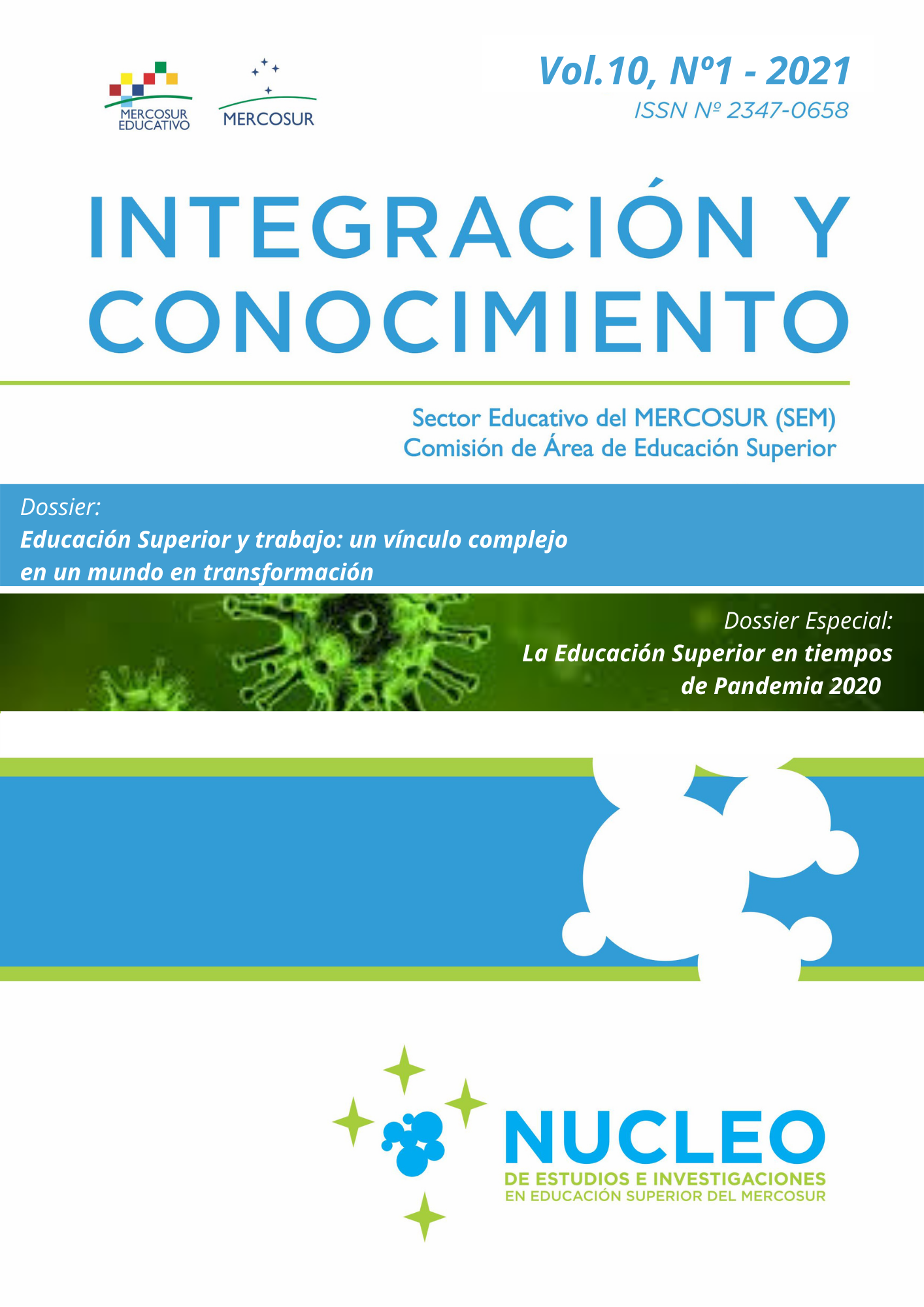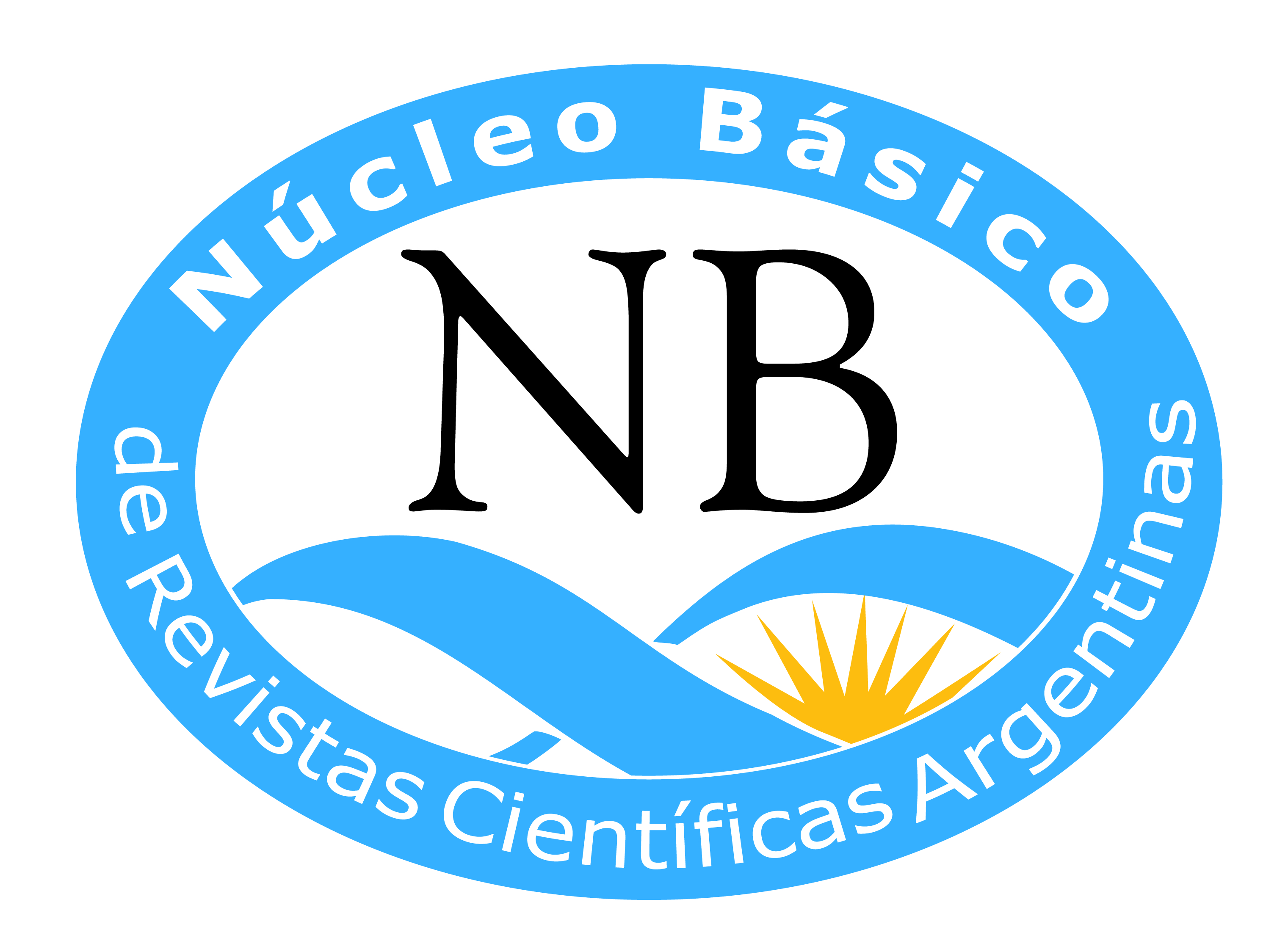Curriculum, social relevance and university policies
DOI:
https://doi.org/10.61203/2347-0658.v10.n1.31948Keywords:
University; curriculum; policiesAbstract
Through a comparative review of the career's curricular projects in the Communications Degree of the Public University in Uruguay, and from the perspective of comprehensive curricular relevance and the multiple relationships between the University and the environment, this article frames the complex fabric of University public policies in the regional context along the recent decades. The approach to the documents of the curricula, their comprehensive relevance and the relationship they establish with the professional field and the world of work is made through the analysis of higher education policies, their transformations and trends in Latin America in the 1990s and 2000s, and the contextual elements of the Uruguayan case. Aspects of the curricular projects are also reviewed as educational policy-influenced products, from prospective scenarios bearing configuration axes, analysis criteria, and models functional to those scenarios, applicable to public universities in the region at the beginning of the 21st century. By finding both a curriculum reactive to the policies of the 90s in higher education in the region, and another project in line with the University reforms at the beginning of the century, which follow a “national university” model, elements showing that the transformations and trends in educational policies in the region in recent decades in the university & society relationship are identified; said transformations and trends seem to be anchored to specific products, such as the curricular designs of a university degree.
Downloads
References
Bentancur, N. y Mancebo, M. (2012). Políticas educativas en tiempos de cambio. Actores, programas e instituciones en Uruguay y la región. Revista Uruguaya de Ciencia Política, 21 (1), 7-12. Recuperado de: http://www.redalyc.org/articulo.oa?id=297325499001
Bentancur, N. (1998). El Estado Evaluador como nueva forma de relacionamiento Estado- Universidades. Revista Uruguaya de Ciencia Política, 10, 117-132.
Bentancur, N. (2004). Gobiernos, Banco Mundial y Universidades: el legado de una década de políticas universitarias en América Latina. Pensamiento Universitario, 11 (11), 7-15.
Bentancur, N. (2004b). Cinco dilemas Universitarios de comienzos de siglo. Revista Uruguaya de Ciencia Política, 14 (1), 85-101.
Bentancur, N. (2007). Reformas de la educación superior en América Latina y el Caribe. Informe, Proyecto Tendencias de la Educación Superior en América Latina y el Caribe. Caracas: IESALC-UNESCO, Caracas.
Bentancur, N. (2008). Las reformas educativas de los años ’90 en Argentina, Chile y Uruguay. Racionalidad política, impactos y legados para la agenda actual. Montevideo, Uruguay: UDELAR- CSIC- ICP- Banda Oriental.
Bentancur, N. (2010). El `derecho a la educación’ como nuevo concepto estelar de las políticas educativas en América Latina. Trabajo presentado en el Congreso Iberoamericano de Educación (OEI), Buenos Aires.
Collazo, M. (2010). El currículo universitario como escenario de tensiones sociales y académicas. Didáskomai, 1, 5-23.
Díaz Barriga, A. (2005). El enfoque de competencias en la educación: ¿una alternativa o un disfraz de cambio?. Perfiles Educativos, XXVIII (111), 7-36.
Equipo Rectoral UDELAR (2009). La Universidad al servicio de la República. Recuperado de http://www.universidad.edu.uy/renderResource/index/resourceId/4477/siteId/1
Gibbons, M. (1998). Pertinencia de la educación superior en el siglo XXI. Contribución a la Conferencia Mundial sobre Educación Superior de la UNESCO. Washington, EEUU: Banco Mundial.
Hidalgo, J. C. (1994). Financiamiento Universitario. Una visión crítica al enfoque económico-utilitario. Santa Fe, Argentina: Centro de Publicaciones de la Universidad Nacional del Litoral.
Kaplún, G. (2001). Facultades de comunicación: entre la crítica y el mercado. Conferencia en Primer Encuentro de Facultades y Carreras de Comunicación del Cono Sur. Mendoza: FELAFACS-UNC.
Kaplún, G. (2013). Viejas y nuevas tradiciones en la comunicación latinoamericana. Revista Latinoamericana de Ciencias de la Comunicación-ALAIC, 10 (18), 66-76.
Kaplún, G. (2014). Observatorio de las profesiones de la comunicación. Departamento de Especializaciones Profesionales. FIC-Udelar. Recuperado de https://aprenderly.com/doc/1894504/observatorio-de-las-profesiones-de-la-comunicaci%C3%B3n
Kemmis, S. (1993). El currículum: más allá de la teoría de la reproducción. Madrid, España: Morata.
Lopera, C. (2004). Antinomias, dilemas y falsas premisas que condicionan la gestión universitaria. Revista Mexicana de Investigación Educativa, 9 (22), 617-635.
Malagón, L. (2004). Dispositivo Pedagógico para la Vinculación Universidad-Sociedad. Tercer Congreso Internacional “Retos y Expectativas de la Universidad”. Universidad Autónoma de Coahuila, México.
Malagón, L. (2003). La pertinencia de la educación superior: elementos para su comprensión. Revista de la Educación Superior, 32 (127), 113-134.
Mercado S. y Alexis A. (1998). Investigación y desarrollo tecnológico en la vinculación universidad-empresa: el dilema entre aspiración y realización en países de América Latina. Cuadernos del CENDES, 15 ( 37), 177-203.
Oszlak, O. y O’Donnell, G. (1995). Estado y políticas estatales en América Latina: hacia una estrategia de investigación. REDES. 2 (4), 99-128.
Pacheco Méndez, T. y Díaz Barriga, A. (2005). La profesión universitaria en el contexto de la modernización. Barcelona, España: Pomares.
Pallares, F. (1988). Las políticas públicas: el sistema político en acción. Revista de Estudios Políticos, 62, 141-162.
Panaia, M. (2015). Universidades en cambio: ¿generalistas o profesionalizantes? Buenos Aires, Argentina: Miño y Dávila.
Sutz, J. (1997). La universidad latinoamericana y su pertinencia: elementos para repensar el problema. Revista Quantum/CCEEA, 9, 257-278.
Tünnermann, C. (2001). Universidad y sociedad. Balance histórico y perspectivas desde América Latina. Managua, Nicaragua: Hispamer.
Universidad de la República-Ciencias de la Comunicación (2012). Plan de Estudios LicCom 2012. Facultad de Información y Comunicación, Udelar. Recuperado de https://fic.edu.uy/index.php/ensenanza/grado/lic-en-comunicacion
Universidad de la República -Licenciatura en Ciencias de la Comunicación (1995). Plan de Estudios LICCOM-UdelaR. Recuperado de https://fic.edu.uy/index.php/ensenanza/grado/lic-en-comunicacion
Universidad de la República (2011). Ordenanza de Estudios de Grado y Otros Programas de Formación Terciaria. Recuperado http://www.universidad.edu.uy/prensa/renderItem/itemId/28864
Downloads
Published
Issue
Section
License

This work is licensed under a Creative Commons Attribution-NonCommercial-ShareAlike 4.0 International License.
Authors who have publications with this journal accept the following terms:
a. Authors shall retain their copyright and guarantee the journal the right of first publication of their work, which shall simultaneously be subject to the Creative Commons License of Recognition which allows third parties to share the work as long as its author is indicated and its first publication is this journal.
b. Authors may adopt other non-exclusive licensing agreements for the distribution of the published version of the work (e.g., depositing it in an institutional telematic archive or publishing it in a monographic volume) provided that the initial publication in this journal is indicated.
c. Authors are allowed and encouraged to disseminate their work via the Internet (e.g. in institutional telematic archives or on their website) after publication of the article, which may lead to interesting exchanges and increased citations of the published work. (See The Effect of Open Access).



